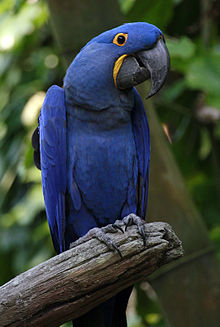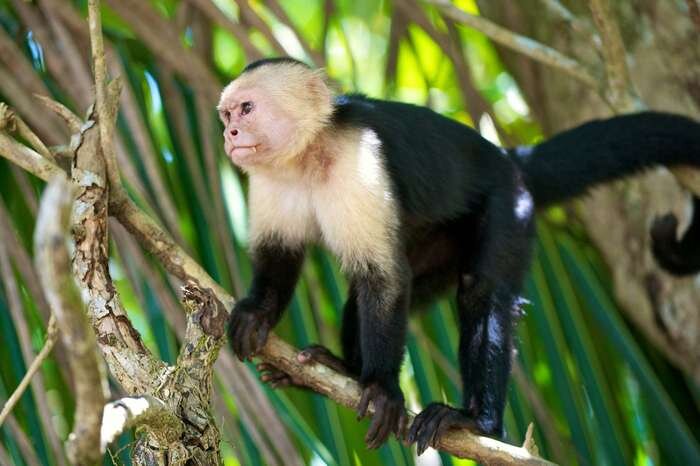Biodiversity & Environment
Rescued Exotic Animals
- 09 Nov 2020
- 3 min read
Why in News
Recently six blue or hyacinth macaws and two capuchin monkeys were released in the Assam State Zoo-cum-Botanical Garden in Guwahati.
- Earlier, a large consignment of exotic animals was confiscated by the Directorate of Revenue Intelligence (DRI) in the same region.
Key points
- Provisions Related to Illegal Wildlife Trade:
- Illegally exotic animals are confiscated under Section 111 of the Customs Act, 1962 which is read with the provision of the Convention on International Trade in Endangered Species of Wild Fauna and Flora CITES and the Foreign Trade Policy (Import-Export Policy) of India.
- Also, Sections 48 and 49 of the Wildlife Protection Act prohibit trade or commerce in wild animals, animal articles or trophies.
- Concerns:
- The possibility of spread of zoonotic diseases on account of smuggling in such exotic species is increasingly becoming a global concern against the backdrop of Covid-19.
- Illegal wildlife trade was ranked the fourth largest transnational organised crime globally, after the smuggling of narcotics, counterfeit goods and human trafficking.
- West Bengal and northeast India are vulnerable to cross-border wildlife smuggling because of their proximity to the Bangladesh and Myanmar borders, and to Thailand.
- Many international organisations involved in wildlife crime use the Indo-Bangladesh Border for various other illegal activities, such as smuggling of drugs, commercial goods, and even gun-running, apart from illegal movement of foreign currency.
Assam State Zoo-cum-Botanical Garden
- The Guwahati Zoo was established in 1957.
- The Zoo is located in the Hengrabari Reserve Forest in the capital city of Guwahati.
- Owing to its rich fauna, the Assam State Zoo is popularly known as "Green Lung" of the Guwahati city.
- Scientific Name: Anodorhynchus hyacinthinus
- It is a parrot native to central and eastern South America.
- With a length of about one meter it is longer than any other species of parrot.
- It is the largest macaw and the largest flying parrot species.
- Threat: Habitat loss and the trapping of wild birds for the pet trade have taken a heavy toll on their population in the wild.
- Protection status :
- International Union for Conservation of Nature's Red List: Vulnerable.
- Convention on International Trade in Endangered Species of Wild Fauna and Flora (CITES): Appendix I.
- Scientific name: Cebus.
- Capuchin Monkeys, also called sapajou, is a common Central and South American primate found in tropical forests from Nicaragua to Paraguay.
- They are named for their “caps” of hair, which resemble the cowls of Capuchin monks.
- Protection status:
- International Union for Conservation of Nature's Red List: Least concerned.






